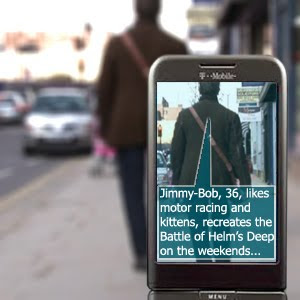
Last week, Julien presented the article Seven Secrets of a Steve Jobs presentation, published in the Washington Post on the November 4th, 2009 and dealing with the Apple phenomenon and its world-wide attraction.
To Julien, Steve Jobs has no imagination and his products are not original. Steve Jobs argues that an ipod (launched in 2001) makes the world « a better place », whereas it wouldn’t improve people’s life. What about the iphone ? It’s not because it combines several use that it is a revolution.
The success of Apple products would be a symptom of our consumer society, where one product is replaced by another in a month, where you have to get an ipod not to look like an old-fashioned person. It would reveal our taste for new things and fashion things.
There were three discussion questions : Do you think that, as a french TV show has said it, Steve Jobs « makes essential what you actually don’t really need » ? Do we have to consider the i-pad and all Steve Jobs’ projects as simple gadgets or real revolution ? Finally, should we make a movie about Steve Jobs because he’s a philanthropist as well as Facebook’s creator according to some people ?
The biggest problem of the first question is that it is a philosophical one : what do we really need ? All I can say, is that our generation was born with technology, we’ve always had it and to be fair, most of us are just drug addicts. We love taking pictures easily, listening to music and using our cellphones where and when we want. We’re used to it. And that leads to the second question. I don’t know if we can consider Steve Job’s products as a revolution – as this word is maybe excessive, but we can’t say that they’re not an original and an useful evolution. The Apple first improvement is the beauty of the design and the quality of the products (even if the screens could be very fragile). Then, and it is the most important : it was the first to combine few use in the same product, that’s why the iphone has had such a great success : it combines a phone (with a tactile keypad and a nice design that is today copied by a lot of its competitors : phones are thiner and bigger), an ipod (a music player with, again, a nice design, an original widget and a high memory), a camera (that wasn’t new) and internet with a big variety of applications – which are the most famous of its assets. Finally, the products are juste very easy to use. These assets are also very well sold by the marketing and we have to admit that Steve Jobs is a genius in this field. As the article explains it, when Steve Job presented the MacBook Air in 2008 the part of the presentation that a lot of people remember is when Steve Jobs unveiled the MacBook Air : he removed it from an envelope. It was crazy ! It looked like a revolution, even if it was maybe a just a very cool product.
Finally, I don’t think that Steve Jobs is a philanthropist, he’s first a business man before being a man who loves high technology and wants to improve it. There will probably be a movie about his life, but it won’t be based on his philanthropy just like the Social Network (the movie about Facebook’s creator) isn’t. I think that what is really impressive about his life is the fact that he has had to face Apple’s terrible difficulties at the end of the 1990’s before having a great success. American movies are often based on stories of losers who achieve great success thanks to their efforts and/or genius.






 Before the holidays, Antoine tells us about facebook and its presentation trough the film « the social network ». He presented facebook, the most popular mean of communication, as an attractive idea, useful and pleasant. According to his analysis, the “facebook generation” seems be a generation of interconnection, sharing of knowledges, but also pleasures, message or personal life.
Before the holidays, Antoine tells us about facebook and its presentation trough the film « the social network ». He presented facebook, the most popular mean of communication, as an attractive idea, useful and pleasant. According to his analysis, the “facebook generation” seems be a generation of interconnection, sharing of knowledges, but also pleasures, message or personal life. 